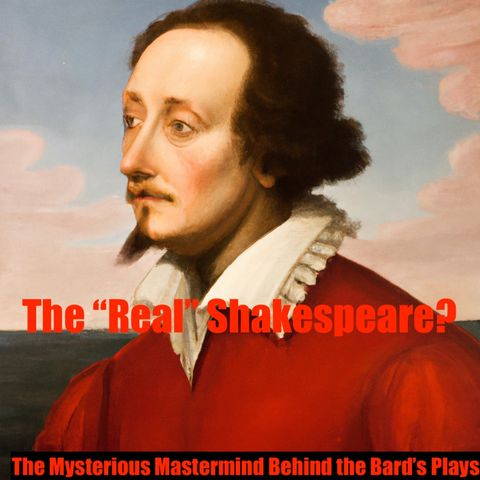Who Was the Real Shakespeare? The Mysterious Mastermind Behind the Bard’s Plays New revelations suggest the legendary plays long credited to William Shakespeare actually originated from a secretive group of aristocratic thinkers. This 5,000-word essay follows the intriguing trail of clues leading to the real identity behind Shakespeare’s lost genius – reshaping everything history tells about the Western world’s most renowned playwright. From his humble origins as a glover’s son from Stratford-upon-Avon to becoming history’s most celebrated English writer, Shakespeare’s life story carries a mythical aura. After arriving in London as a virtually unknown actor in the 1580s, he suddenly produced over 35 plays transforming drama into an Elizabethan sensation by the early 1600s. Yet frustratingly little historical evidence documents Shakespeare’s personal life compared to literary rivals. No letters or manuscripts definitively confirm his authorship. Even prominent contemporaries fail to mention Shakespeare as a writer during his lifetime. Scholars rationalize his oversight resulted in focusing solely on craft while avoiding self-promotion. But the lack of a tangible record remains suspicious for such a culturally pioneering public figure. Most skeptics acknowledge Shakespeare’s undeniably formidable role in advancing world theatre through his acting troupe called Lord Chamberlain’s Men. But how did an actor with a modest education gain such erudite command over history, law, philosophy, languages, astronomy, and global affairs permeating throughout plays like Hamlet or King Lear? Even fellow writers like Ben Jonson marveled at Shakespeare’s depth of classical knowledge. Seeking answers, researchers Kathman, Ross, and McCrea traced connections back to Shakespeare’s key patron – Ferdinando Stanley, Lord Strange – who inherited extensive aristocratic ties upon becoming Earl of Derby in 1593. Lord Strange’s family tree, writings and recorded interests closely mirror the themes and settings of Shakespeare’s lost 1590s works centering on medieval British history, Italian romances, classical rhetoric, and even astronomy and falconry. Stanley also traveled in the same elite philosophical circles as innovative thinkers like Sir Francis Bacon, a pioneer of the scientific method. Bacon dedicated his utopian novel The New Atlantis in 1627 to Stanley’s son praising the family’s legacy. Given Stanley’s sudden unexplained death in 1594 at just 35 years old, some now speculate members ghostwrote lost Shakespeare plays posthumously, or even secretly collaborated all along, with the Stratford actor publicly fronting distribution through his acting company’s exclusive theatrical rights. Lending credibility, records prove play versions of Shakespeare’s Richard II angered Queen Elizabeth when staging the monarch’s overthrow in 1601, forcing revisions. How would a commoner actor access such politically perilous accounts of sovereign regime change without high-society contributors guiding content? Parallel cases like French philosopher Voltaire and Spanish countess Emilia Pardo Bazán publishing anonymously under pseudonyms appeared throughout history to avoid controversies. Additionally, many top Shakespeare candidates like Bacon and legendary poet Sir Edward Dyer also conveniently died within months of King James publicly acknowledging the actor from Stratford for the first time in 1603. Suspicious deaths of potential truth-tellers further fed alternate authorship conspiracies. Proponents argue this supports theories of a secret aristocratic clique stealthily hiring the aspiring actor Shakespeare as their literary frontman to pen great English Renaissance works before permanently eliminating other candidates capable of refutation. While unproven, Shakespeare’s shroud of mystery thickens! Perhaps this ‘lost genius’ group sought to immortalize England’s heritage through drama-fearing catastrophic follow-on regimes. Or an exiled royal wished to idealize British tradition to sway opinion on questionable Tudor succession claims against King James the Scot. The political motives likely died with them – bodies buried alongside buried truths. Yet from uncanny knowledge to alignments with England’s highest thinkers, the Stratford Shakespeare seems less genius...and more ghostwriter. We may never wholly verify the bard’s true identity. But behind the name ‘Shakespeare’ undoubtedly lurks an even deeper story of intrigue and anonymity driving Western culture's most celebrated plays from the shadows.
Thanks for listening to Quiet Please. Remember to like and share wherever you get your podcasts.
show less


Comments